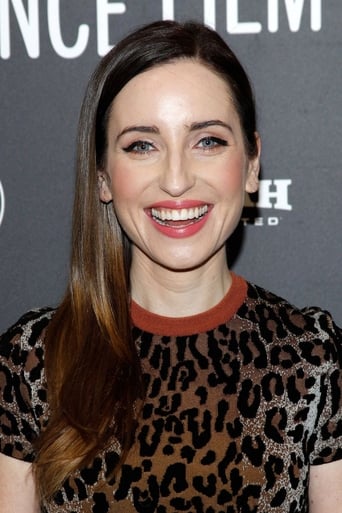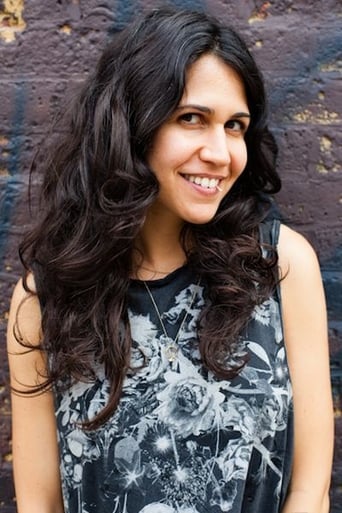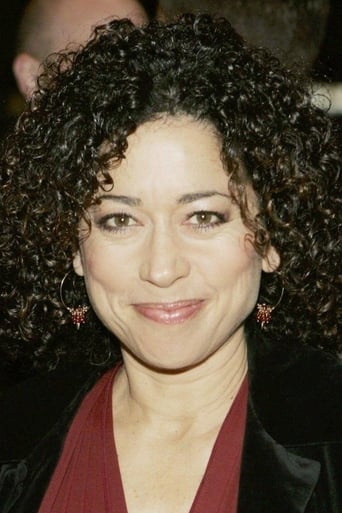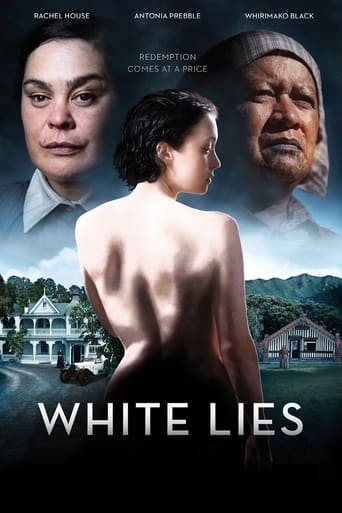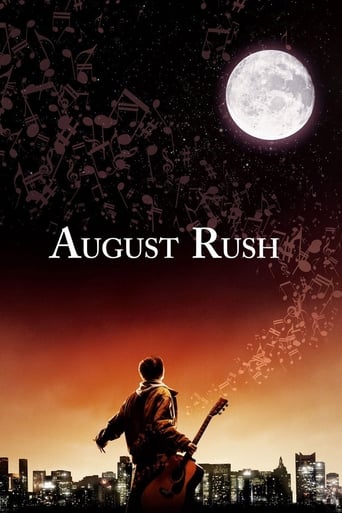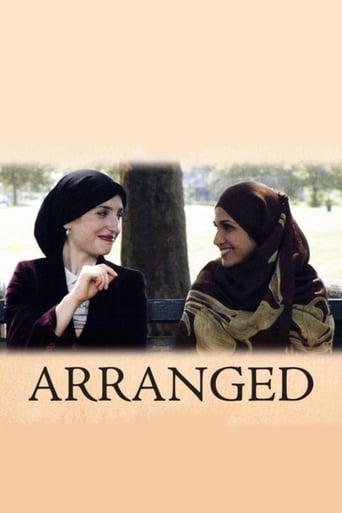
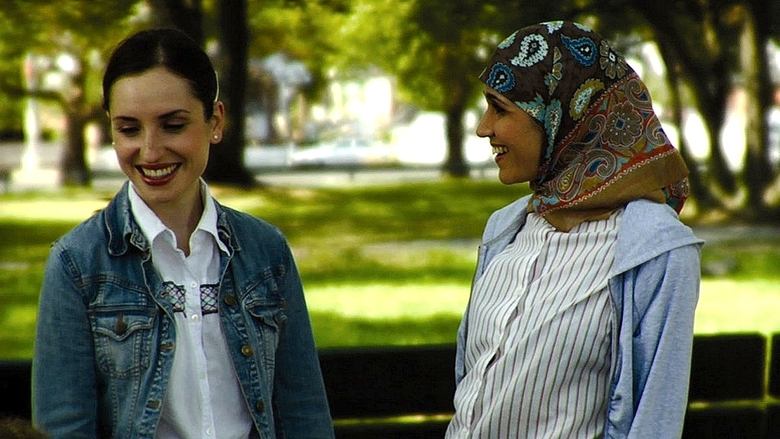
Arranged (2007)
ARRANGED centers on the friendship between an Orthodox Jewish woman and a Muslim woman who meet as first-year teachers at a public school in Brooklyn. Over the course of the year they learn they share much in common - not least of which is that they are both going through the process of arranged marriages.
Watch Trailer
Cast


Similar titles
Reviews
Sunday, 7 February 2016 Shalom. Ma nish ma? This is a great film. I wonder why I have not heard or seen it in the year of 2007 when it was released. This film is great from start to finish. It shows how two young women, one Jewish American and one Arab American who bond and develops a friendship by way of working as public teachers. Their friendships shows how much better the world would be if only the two groups would open their hearts and minds. Arabs & Jews are in reality half brothers/half sister. The two women also have something in common with both sets of families are trying to forced each one into marrying a man they do not date, get to know nor love, henceforth the title "Arranged" or "Arranged Marriage." I thank God that I live in great U.S. America where our parents in our society does Not force or allow their teens to marry before they are 18 or 21 and marry a man or woman, they do Not get to date and know well and most important to find things in common and physical attractions. In my opinion, 18 is to early, barely out of high school. This film also show bigotry and racism when Rochel, the young Jewish woman brings home her Arab friend, Nasira and the same when Rochel is in the Arab home. However, in the Arab home, it seems to be a little more friendly and tolerant.This hatred is NOT of God and Jesus Christ/Yeshua, but due to long ago feuds ever since in the Holy Bible, Abraham was married to his Jewish wife, Sarah who could not have kids. Sarah gave husband Abe permission to be with their house maid, Hagar, an Egyptian Arab woman. Abraham's first son was Ishmael by Hagar. Later on, Abe had a son with his wife, Sarah whose name was Isaac. Hagar and Ishmael was forced to leave and so the feud of hate began.In reality, "Racism, bigotry and hate is something a child is taught, Not something a child is born with." and "True Love sees No skin color" Anyhoo, this film is excellent. I give it a 10 and two thumbs up.Shalom, Laila Tov. La heet ra ot.
It is not often that one gets to see films dealing with intense, political issues such as feminist and religious identity, and that too with an interesting storyline, well sketched characters, confident craft and decent performances. And when such a film falters, markedly on its politics, the disappointment is profound. This is the case with Arranged, which had all the makings of an indie classic, and was an absolutely beautiful watch till ah well, the end! The film is set in New York and is woven around the lives of two young women, Nasira, a Muslim and and Rochel, an orthodox Jew, who are teachers and happen to join the same school. They soon become friends, partly because they share some classes, but also because they have something in common, which is their reverence to religion. What binds them even more is their ongoing struggle with meeting prospective grooms from their own communities, as arranged by the family.Their religious identity and perhaps conformity is a constant source of irritation for the school principal, who reminds them of the women's movement and urges them to exert their freedom and choice, including in the matter of marriage. But her brief sermons leave them rather cold, as they feel that choice is indeed available to them and that a blanket rejection of all that is traditional is unreasonable. Even as they participate in the ritual of groom hunting, they also question it many times, but only till "Mr Perfect" comes along. Then they happily get married and their faith in "God's will" is reinforced.Such an end is somewhat perplexing and even disturbing. It is true that today when religious minorities everywhere often suffer pressure or prosecution to integrate in the 'majoritarian mainstream', their right to preserve their religious identity and traditions needs much bolstering. It is also true that feminism itself has many shades and the western liberal framework may not understand or explain the plurality of feminist experiences and expressions. To that extent, the film sensitively addresses a critical issue of diversity and religious tolerance. But religious and the traditions they sanction cannot be impervious to criticism, for these can well be violent and violate the most fundamental of human rights, especially of women, who are often burdened to be the carriers of these traditions.'Arranged marriage' may perhaps not seem an urgent human rights issue, especially in the way it is represented here, where women do have a say in whether they like a suitor, and where they eventually find a partner of their choice. But even a glance outside this somewhat cosy narrative reveals darker stories. In India, where I come from, this institution of arranged marriage is ubiquitous, which is mostly an arrangement made by parents to keep the purity of their status, religion and caste intact, and which is often the only choice available to the majority of young women. If these women do reject this tradition and find a partner of their choice, they can face extreme consequences, such as even 'honour killings'. Not to mention that a high percentage of married women in India suffer from some kind of domestic violence but are unable to break away due to pressures of family to adjust and compromise. Given that all these marriages are religiously solemnized, a big question hangs on whether the will of family or god is always right!There is little doubt that marriages arranged by self or family can equally be a success or failure, and that any choice is always mediated by constraints. But this film, in its happy resolution, misses this point, and ends up glorifying traditions and institutions that bear very heavy on women in most parts of the world, and which therefore need much resistance and defiance. While the film carries a valuable message of friendship and tolerance, but sadly it fails on its gender politics.
As an orthodox (religious) Israeli Jew - I would like to give my impression of this film which deals with the friendship that evolves between 2 young teachers one a religious Muslim and the other religious (orthodox) Jewish. Firstly despite the political tensions that there are between Jews & Arabs culturally they have more in common with each other then with Christens or the atheistic/non religious western culture – So it does not surprise me the plot of their friendship. I think the film goes along way in tackling the misconception that an arranged marriage means no choice and depicting-especially through the biased principal -the intolerance of the supposedly open minded western world. That said, I feel there is some what of an inaccurate and biased portrayal of Rachel , her family and the religious(orthodox) Jewish world. Firstly some quotes from other reviews that also felt this:"when Nasira firmly refuses his chosen prospect, he offers only minimal resistance - and the father-daughter relationship appears to be strengthened by the episode. It is Rochel who must resist themost serious psychological onslaught from a gaggle of marriage arrangers after they present her with a parade of socially ineptmisfits. When all of them are rejected, Rochel's mother blames herunrealistic expectations for her father's rising blood pressure, andpredicts lifelong spinsterhood, family disgrace and diminishedmarriage prospects for a younger sister - and Rochel subsequentlybegins to consider fleeing her family's community.The scenes that follow all have to do with welcoming strangers into one's home (The Muslim family does, the Jewish one does not), choices in marriage (both girls have a problem with this, but onlythe Jewish woman has a problem with her family as well) or the talkthat binds their friendship.""What bothered me about the movie and something I've not seenmentioned is the political correctness evident throughout. The Jewsare depicted as narrow minded somewhat brutal or stupid haters of allthings either Arab or maybe non-Jew. Meanwhile the Arabs are allmellow high IQ tolerant understanding scholars. Where the Jewsthreaten and brutalize their daughter, the Arabs are understanding oftheirs.Even the home life reflects this. The Arabs are a loving family whilethe Jews snipe at each other, whine, terrify the daughter by sayingher behavior will kill the father and even includes a consistentlynasty little kid." The Muslim family in general is depicted as more open to strangers and in a more positive light. While there may well exist individuals in the religious American Jewish world who fit the picture presented – I feel it is more a stereotyped caricature. While Rachel's mother might have had misgivings about Rachel's Muslim friend coming over she would not have made her leave.(welcoming quests is an important part of both Arab and Jewish culture). The film also made all except the Last of Rachel's shidduch dates out to be total losers and misfits – this would rarely be the case –though it might Take a number of "tries" to find the right one. In the reality of how arranged marriages work in the Jewish world a lot of time would be spent before the actual date checking the "prospect" out by getting character references from at least 3-4 different sources. Also the Shadchanit seemed to always only stress the prospective boy's financial future.In reality more stress is usually placed on the boy's knowledge of Torah(Jewish law)Good character ,level of observance of Jewish law and specific traits one is looking for – quiet or gregarious etc. The object being not to have the couple meet unless there is a Good chance of compatibility. Again while it is a pressured process most families would be more understanding and less pressuring then Rachel's family is portrayed. Also there are many different sub groups of orthodox Jews and depending on the custom of the the sub group the couple would meet from a few times to say up till about 3 months before getting engaged. In reality these marriages are usually more stable and successful then the secular –live together for a couple of years then maybe marry type. Why ? The difference between visiting a place as a tourist or looking for a place to live-one looks for different things and there's a different kind of commitment. Yes as opposed to modern western culture – marriage and family are seen as central to life and not to get married not really an option.In short this film was an interesting attempt at tackling an unusual subject but the inaccurate negative caricatures spoil it.
Nasira and Rochel are the daughters of a Koranic scholar and Orthodox Jewish fathers beginning their teaching careers at a NY elementary school, who are drawn together by their common experience of belonging to conservative religious communities. The film's title focuses on the issue of arranged marriage, but the two women are only subjected to fairly mild forms of arm-twisting associated with this patriarchal custom. The main theme is their friendship across a cultural divide, which provides support as they resist the school principal's disapproval of their beliefs and parental pressure to marry.Nasira's father is portrayed as a traditionalist who simply cannot envision his daughter's future without marriage and children. He offers only minimal resistance when Nasira rejects his chosen prospect - and the father-daughter relationship appears to be strengthened by the episode. Meanwhile Rochel resists a comical onslaught from her mother and a gaggle of marriage arrangers when they present her with a parade of socially inept suitors. Her mother bullies her with warnings about family disgrace and lifelong spinsterhood, and blames her for her father's rising blood pressure.Francis Benhamou and Zoe Lister Jones deliver fine performances as Nasira and Rochel. They are backed up by their support cast as the screenplay and direction navigate a narrow passage between melodrama and realism. By the time the story reaches its conclusion, only the most stubborn cynic will remain immune to these unusual heroines.


